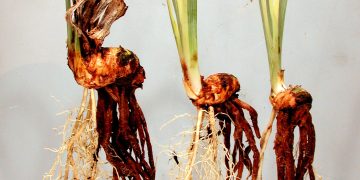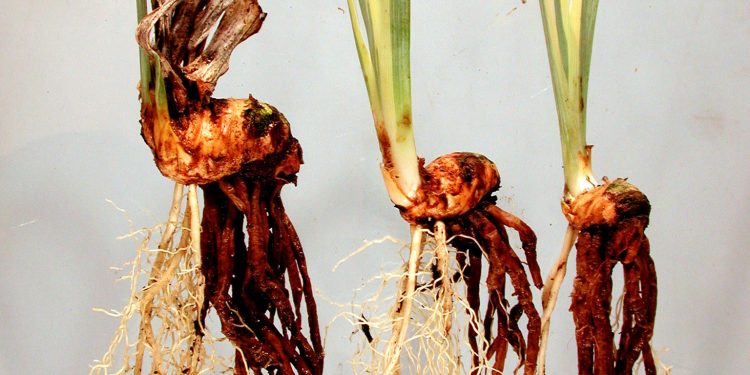#PlantDiseaseControl #BiologicalControl #GeneticEngineering #CropYields #Sustainability
Fusarium root rot, caused by Fusarium spp., is a serious plant disease affecting a wide range of crops, including wheat, barley, corn, and soybeans. It can cause significant yield losses, reduced crop quality, and increased susceptibility to other plant diseases. The fungus infects the roots of the plant, causing stunted growth, wilting, and eventual death.
To combat the devastating effects of Fusarium root rot, researchers are developing new strategies to manage and control the disease. One promising approach is the use of biological control agents, such as beneficial fungi and bacteria, which can inhibit the growth of Fusarium spp. and improve plant health.
Another strategy is the development of resistant crop varieties through traditional breeding methods or genetic engineering. This can involve the identification and incorporation of genes that confer resistance to Fusarium spp., or the manipulation of plant hormones to enhance resistance.
However, the development of these strategies is not without its challenges. The effectiveness of biological control agents can be influenced by environmental factors and the presence of other microorganisms, while the development of resistant crop varieties can be hindered by the complexity of the host-pathogen interaction and the potential for unintended consequences.
Despite these challenges, the development of effective strategies to combat Fusarium root rot is crucial for maintaining global food security and sustainability. By optimizing the use of biological control agents and genetic engineering techniques, we can improve crop yields, reduce the use of harmful chemicals, and ensure a stable supply of nutritious food for future generations.































